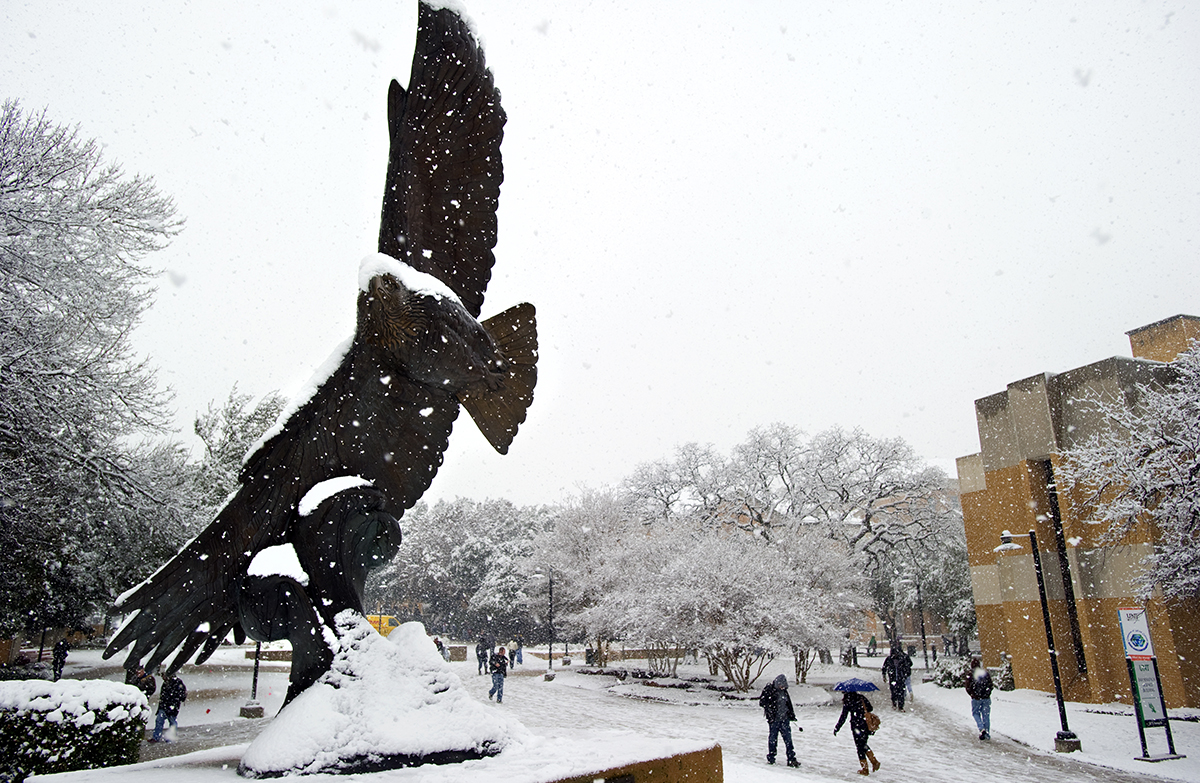Cold Weather Tips:
- Stay indoors as much as possible. If you are outdoors, take short breaks from the cold conditions every 20 minutes at least. If temperatures go below 13 degrees F, remain indoors.
- Pay attention to weather reports, freezing conditions, and winter storm warnings.
- Adjust your schedule (if able) to avoid being outside during the coldest part of the day.
- Prepare and plan for what you would do in the event of a power outage.
- Gather supplies in case you need to stay home for several days without power.
- Purchase warm clothes that would be appropriate for layering.
- Protect your outdoor pets by ensuring they have access to warmth.
- Take precautions to protect your water pipes from freezing.
- Bring in or cover any outdoor plants that may be susceptible to the cold.
- Fill up your car tank and update your winter car survival kit.
- Keep in mind that slippery surfaces may also form if cold temperatures cause sprinkler systems or other piping to break and leak liquid.
- During cold wind chill, wear many layers of clothing and encourage others to do the same.
Here are additional things to keep in mind:
The university takes several precautionary measures when cold weather is forecast for the campus. During extreme cold weather, buildings on the UNT campus may be colder than usual. If precipitation (freezing rain, snow, sleet) is expected with cold weather, Facilities puts down sand along walkways to prevent slippery surfaces.
- Should the university ever close, delay opening, or cancel classes for inclement weather, an Eagle Alert notification will be issued. If an announcement is NOT made, then UNT will be open. More information can be found at www.unt.edu/weather. Find out how to update your Eagle Alert contact information here.
- If you find a slippery location or a broken pipe/sprinkler on the UNT campus, immediately notify UNT Facilities at 940-565-2700.
- Pack a car emergency kit.
- Check the roads before you go (visit www.drivetexas.org for updated road conditions).
- Wear your seatbelt.
- DRIVE SLOW.
- STAY ALERT.
- Accelerate and decelerate slowly.
- Allow plenty of time and distance to bring your car to a stop (because of reduced traction, it takes longer to speed up and slow down).
- Do NOT power up hills - this may cause your wheels to spin.
- Do NOT stop on an incline - it will be both hard to stop and you may risk sliding backward.
- Do NOT stop if you do not have to stop - it will be hard to get moving again.
- If you are involved in an accident, get off the road (if able) and use your hazard lights to warn others to stay off the road. Call 911 and wait for first responders to arrive.
- If you start to slide or skid, calmly steer in the direction of the skid to straighten out the vehicle and regain control.
Frostbite is caused by freezing of the skin and tissue. Frostbite causes a loss of feeling and color around the face, fingers, and toes. Other symptoms of frostbite include numbness, white or grayish-yellow skin, and firm or waxy skin. If you or someone you know experiences these symptoms:
- Go to a warm room
- Soak skin in warm water
- Use body heat to warm - DO NOT massage the skin or use a heating pad
- Seek medical attention if symptoms do not improve
Hypothermia is when the human body reaches an unusually low body temperature (any temperature below 95 degrees F). The symptoms of hypothermia including shivering, exhaustion, confusion, fumbling hands, memory loss, slurred speech, or drowsiness. If you or someone you know experiences these symptoms:
- Go to a warm room
- Warm the center of the body first—chest, neck, head, and groin
- Keep dry and wrapped up in warm blankets, including the head and neck
- Seek medical attention if conditions do not improve
Take our Extreme Temperatures Awareness Training through UNT Bridge which covers cold temperature preparedness as well as how to prevent and respond to cold-related illnesses.
Learn how to keep your pipes from freezing.
Learn what should go in your emergency supply kit here.
Learn more about winter weather here.
